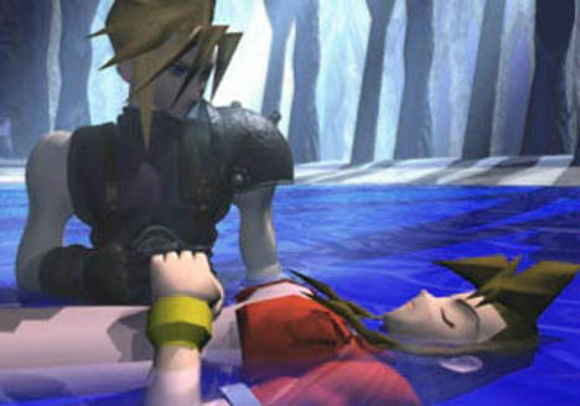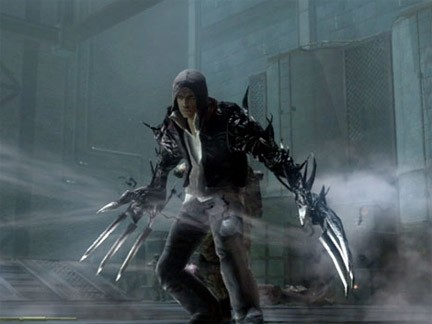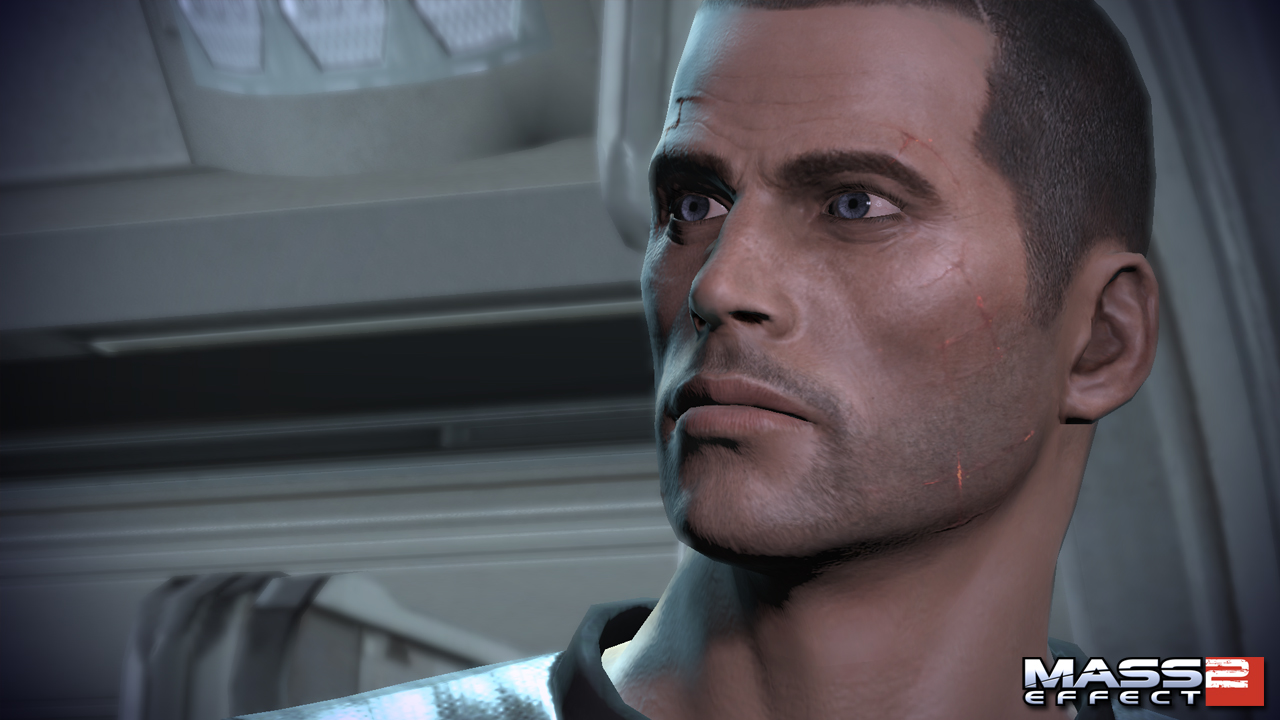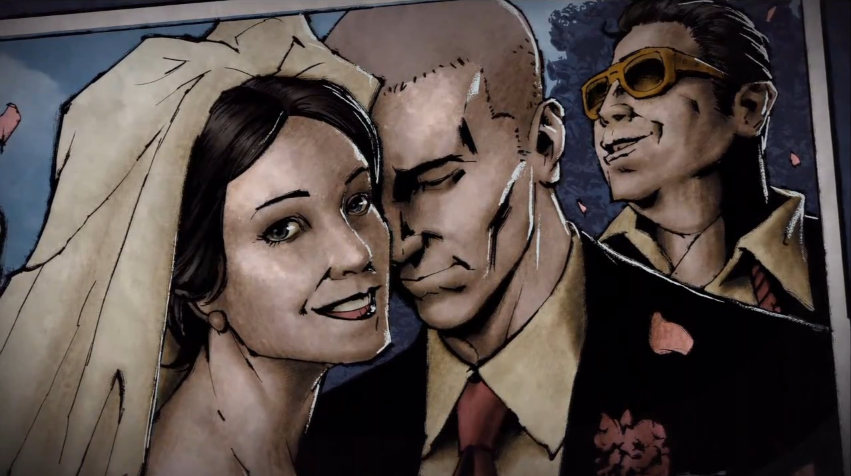This post has not been edited by the GamesBeat staff. Opinions by GamesBeat community writers do not necessarily reflect those of the staff.

The characters of a game are perhaps the most crucial element of the story, and whether or not the player feels emotionally attached to them helps determine their level of immersion in the overall narrative.
In other words: If players truly care about the characters, their friends and allies, and the events taking place on screen, then they will undoubtedly care about the outcome of the story; it would be successful in grabbing the player’s full and undivided attention.
However, the story can be held back by flat, one-dimensional, and simply boring characters that the player just cannot bring themselves to feel concern for.
This almost goes without saying: It’s all in the writing.
So how does a game influence players to feel for its characters?
For starters, a character needn't be likeable for players to care what happens to them. Of course, if we love a character, we feel distraught when an unfortunate fate befalls them. But just because someone is a villain with a cold-hearted, generally unlikable personality doesn’t necessarily mean that we don’t care about them.
When we dislike a character, we hope for them to suffer the worst possible outcome — we care — and feel betrayed when they prevail.
With that in mind, we can get to the primary deciding factors that shape our feelings toward a character — the dos and don’ts of writing someone that players care about.
Do: Make your character useful to the player
With supporting characters, their level of skill and usefulness can often determine our opinion of them. This mostly pertains to non-player characters who accompany the main hero during his or her quest.

Alyx Vance (Half Life 2) is an excellent example of a character who lends a helping hand to our main hero (that being Gordon Freeman) … someone who would leave the player at a disadvantage should she be lost.
Throughout certain parts of Half Life 2, and pretty much all of Half Life 2: Episode 1 and Half Life 2: Episode 2, Alyx is right by our side. However, she is not just another damsel in distress but a useful asset helping us reach our destination.
In fact, there are a few parts of these titles where progressing further is impossible without her — small spaces that Gordon cannot fit into, technological machinery that only she can operate, and fighting — quite effectively — alongside our hero.
Of course, Alyx is also known for her happy-go-lucky personality and attractiveness, but it’s the fact that she’s essential to the gameplay which makes her an outstanding example of a character that we, as the players, care for and are emotionally attached to.
Don’t: Make your character a burden
This again applies to non-player characters; if a character holds us back from completing our goals (usually not the intention of the writers), players don't care for them and will, in fact, be praying for a chance to be rid of them.

Dragging Yorda around by the hand like a child turned out to be quite the strenuous task.
An example of this situation is Yorda from Ico. In Ico, the hero is required to protect Yorda at all times and lead her away from impending danger. We can assume that the intention of the writers was for players to feel compelled to rush to the aid of a damsel in distress, but this ultimately was not the case.
In reality, gamers found Yorda to be extremely annoying. She could not fight or defend herself and was apparently content to simply stand there and be killed by an onslaught enemies; she would never help you solve any puzzles but would instead stand silently and watch while you struggled to figure out the solution.
The most irritating quality of Yorda was the fact that she was … well … just plain stupid. It’s true — most of the time, Yorda always seemed completely oblivious toward the events transpiring around her and would often place herself directly into the path of danger. Countless times, she would witlessly trip and fall into one of those devious shadow pits, at which point we would have to restrain ourselves from throwing our controllers through our TV screens.
Yorda was too much of a burden on the player for us to be truly concerned about saving her.
Do: Give your character an in-depth, fleshed-out personality
There is much more to a character’s personality besides being a courageous hero or a cunning villain — or at least there should be. In order for players to feel emotionally attached to these characters, their personalities must be written realistically.
If a character is a villain, they should never be 100% evil. If they're good, they shouldn't be a saint. Characters with strengths and flaws, as well as a realistic and relatable personality, are often quicker to grab players’ hearts or strike their nerves.

He may be kind of a jerk, be he has his reasons.
Kratos, hero of the God of War series, is an example of a character with a realistically flawed personality. From the start, players are presented with Kratos’ strikingly evil personality, as he ruthlessly carries on a rampage of brutal murders throughout the game.
However, Kratos has his motives: Harm was done to those he loved.
Throughout God of War, we learn more about Kratos, and while we may not condone his actions, we grow to understand them a bit better. It's elements like this that make a character like Kratos realistic and easy for players to relate to — therefore, we grow to care for him.
Don’t: Make your character one-dimensional
Characters of this sort are unrealistic and very hard to take seriously.

Also kind of a jerk but lacking a legitimate excuse.
For example, we have Alex Mercer from the original Prototype. Sure, he’s genetically altered to be able to do some incredible things in the game, but his personality is nearly nonexistent. His backstory and motive are paper-thin. As a player, we cannot become invested in him.
Do: Give the player freedom to draw their own opinions
In a book or a movie, we are an outsider observing the exploits of a character who is often on a quest to save those who he or she cares for. In a video game, things do not exactly work the same; just because the main character cares about someone, that doesn’t mean we do.
The story of a game is much more successful when players are allowed to influence the outcomes of major events. Through their decisions, players can determine which characters they like or dislike.
In cases such as these, it’s hard for the player to not feel completely immersed within the story (if it’s done properly, that is).

As Commander Shepard, players decide which characters they actually care about.
The Mass Effect series is a prime example of this. In Mass Effect and both of its sequels, the story is tailored around the decisions of the player. Since the player creates the main character from scratch, they have the freedom to flesh out their personality throughout the course of the game in whatever way they see fit; therefore, they have no preconceptions regarding the various supporting characters.
It’s because of this that we are able to decide for ourselves which of them we see as our friends and which as our enemies. And the choices we make throughout the game may or may not lead to an unfortunate fate for one or all of these characters.
When something unthinkable happens to a character that we care about, we feel not only sadness but guilt..
For example: At various points throughout Mass Effect 2, players are given the opportunity to upgrade the armor, shields, and weaponry of their spacecraft, the Normandy SR-2. The game never explicitly states that you are required to do so, and many of us initially did not.
Near the end of the game, an in-space firefight ensues, during which numerous characters aboard the Normandy are killed if the ship has not been fully upgraded.
Countless players felt an almost overwhelming sense of guilt when they realized that some of their favorite characters had died in vain … simply because they did not take the time to fortify their ship. Needless to say, players cared about the characters in this situation.
Don’t: Try to force players to care about a character
In too many games, the narrative tries to force the player to feel for a certain character. This person is often someone who the main character cares for; but just because they do, that doesn’t mean we do.
As players, we need to be given a reason to care, and sometimes, just showing us that the main protagonist cares doesn't exactly cut it.

Cole, Cole, Cole … what do you see in her?
In Infamous, the main character, Cole McGrath, has a girlfriend named Trish who he is very much in love with. Throughout the game, the player is forced to save and protect her from danger. However, many gamers weren't too fond of Cole's beloved; she often blamed him for things he hadn't done.
The fact that Trish wasn’t a generally likable character made it a little difficult for players to really care about what happened to her — even though we are being told to to like her.
Conclusion
Whether or not players feel emotionally attached to the characters in a video game can greatly enhance or detract from the story.
A character needs to be realistic and able to pull their own weight. We should also be allowed to form our own opinion of them.
This is the only way we can truly care about a game's characters.
